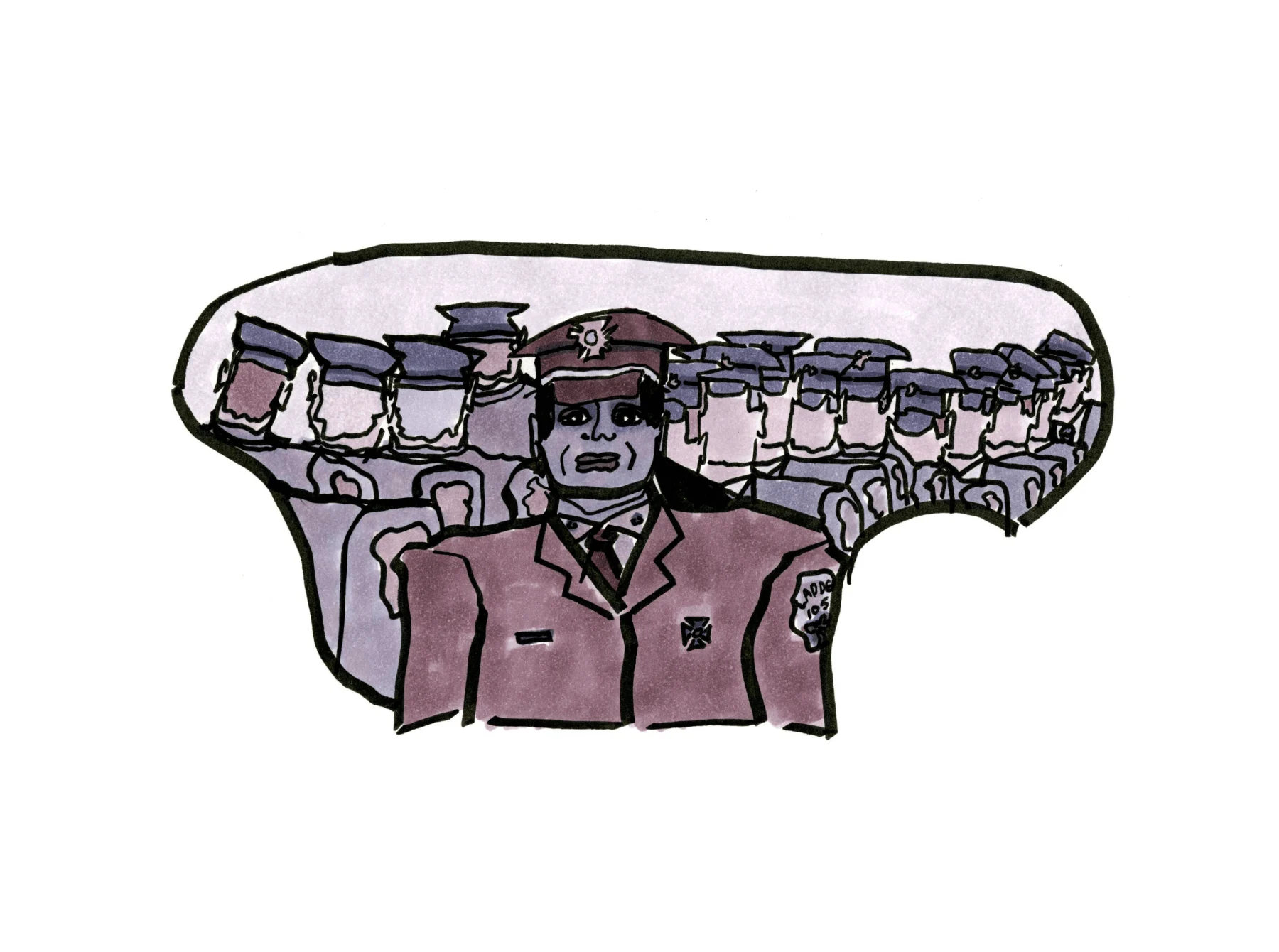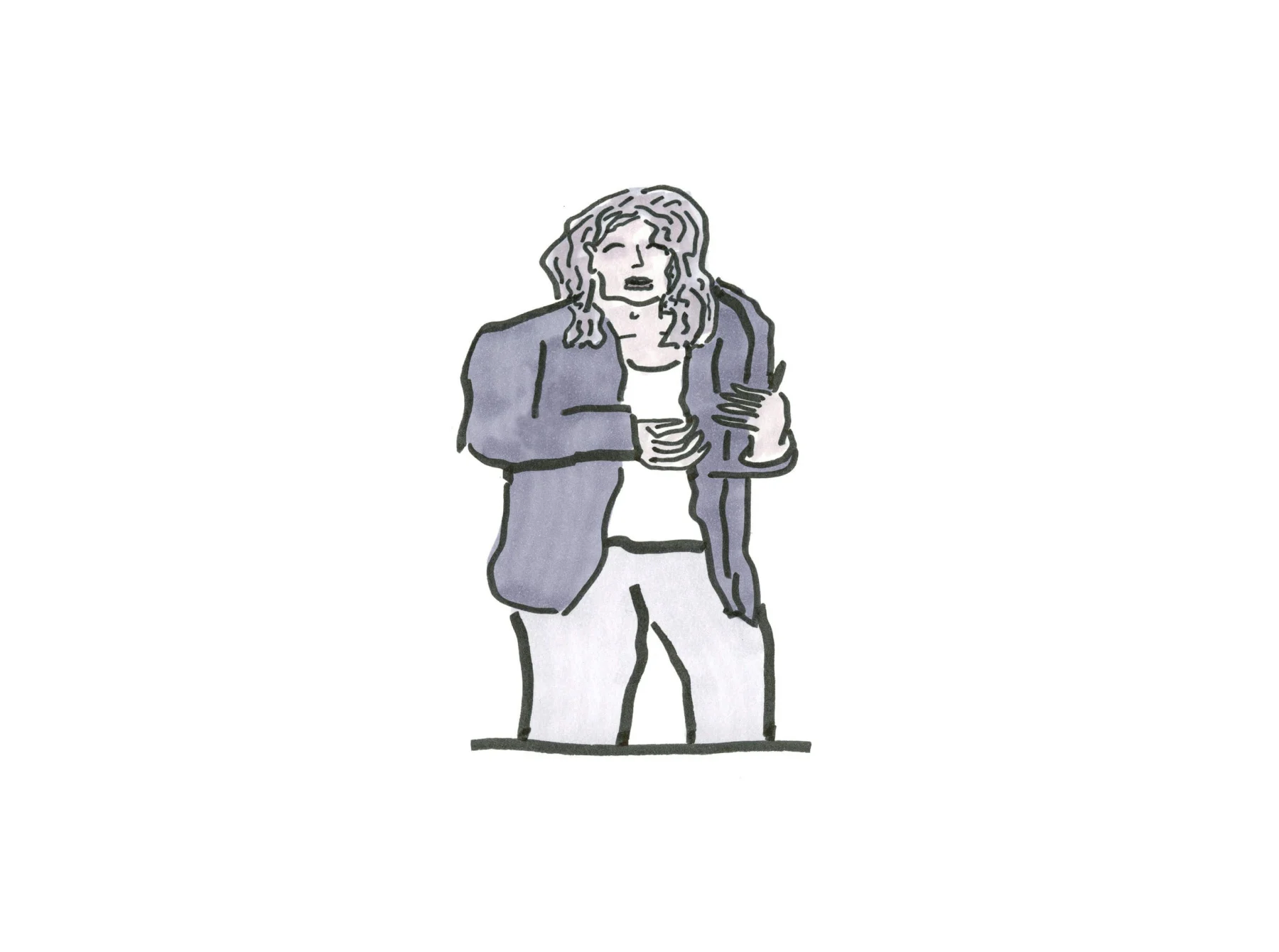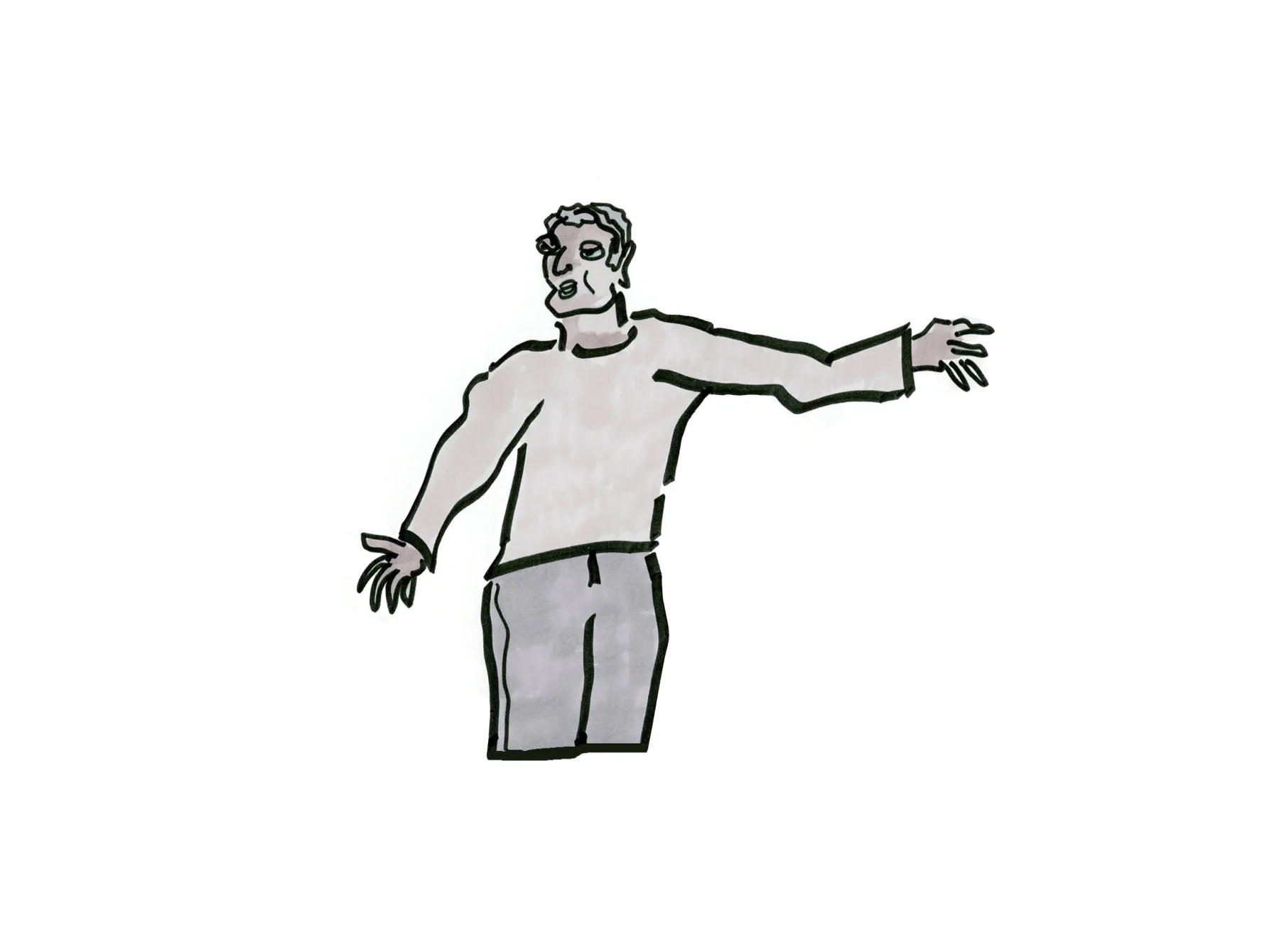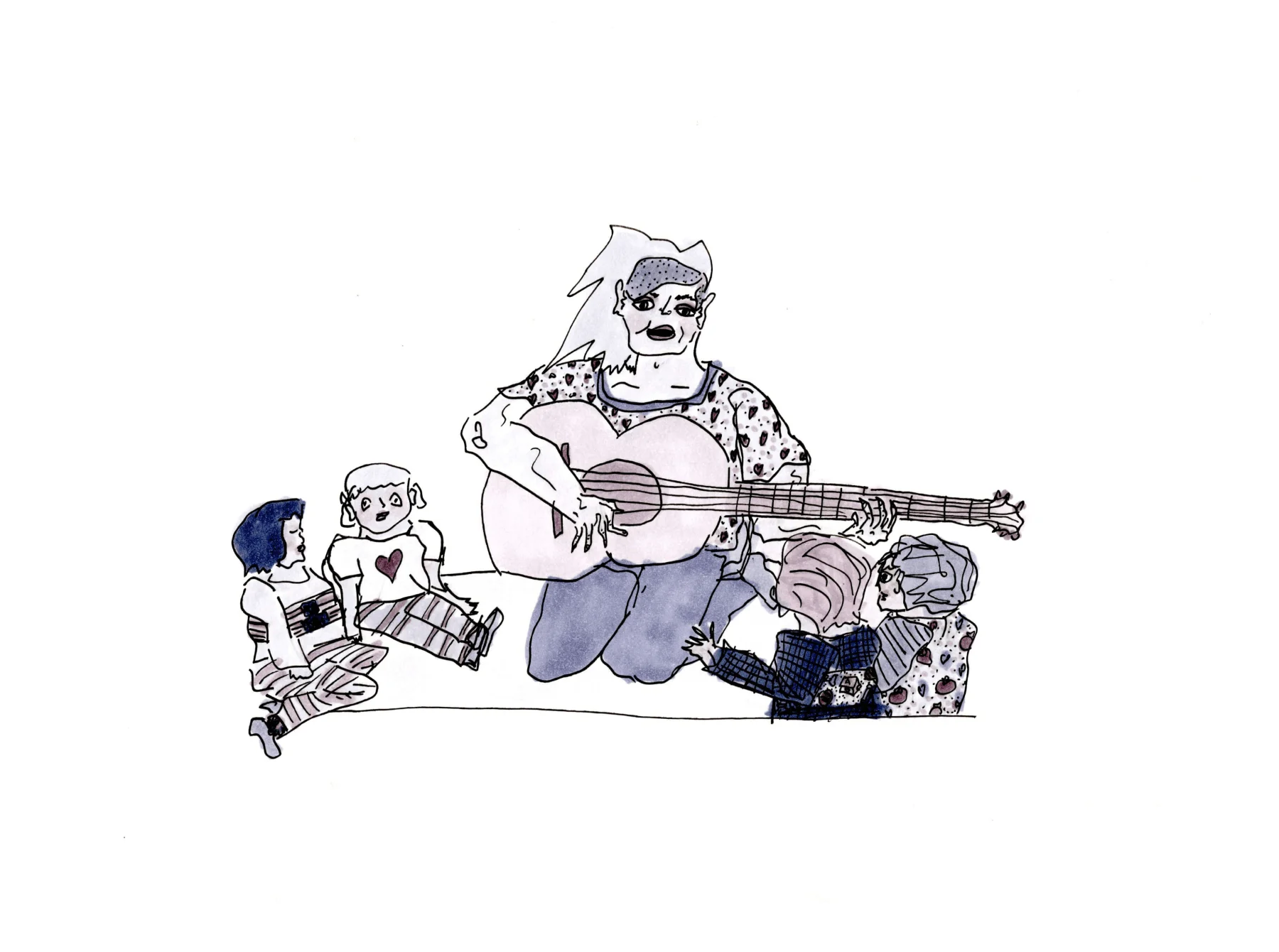
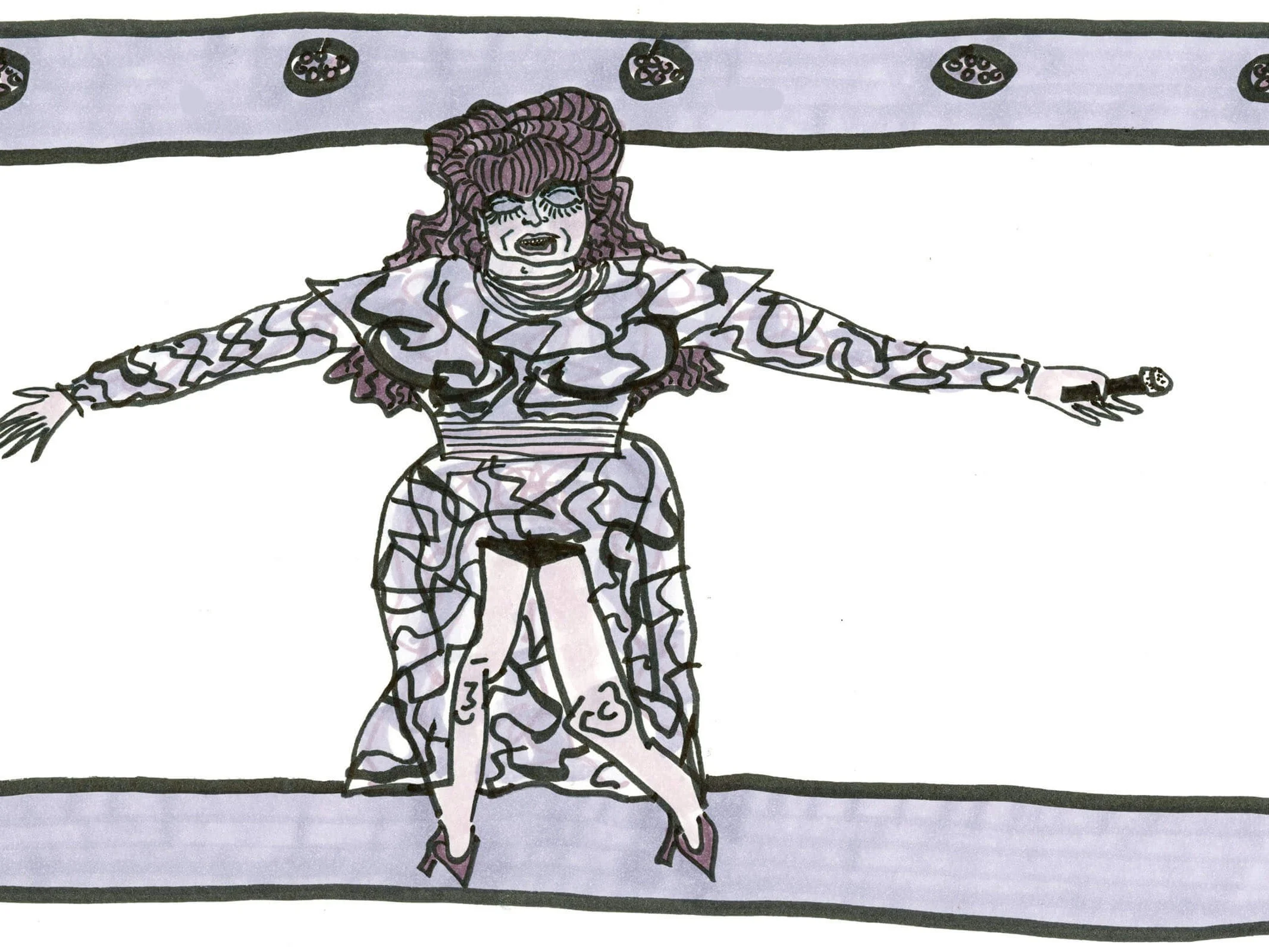
WeTransfer is a proud supporter of the University of the Underground. This free two-year Masters program uses design thinking to tackle the world’s biggest problems.
Notes from the Underground is an interview series curated – and sometimes conducted – by its founder, Dr Nelly Ben Hayoun. From a world-renowned curator to an anarchist drag artist, the pieces take us into some of the most unusual creative minds working today. Illustrations by Heather Loase.
Dubbed the “high priestess of camp,” Peaches Christ has used cinema and drag to build a counterculture by reclaiming the rejects of polite society and using them as a foundation to ignite a new culture.
She borrowed religious symbolism to launch the legendary Midnight Mass film series in San Francisco honoring cult movies in a new form of cinematic spectacle that mixes theater, audience participation and worship. She tells Ted Gioia how she sees the world.
What does counterculture mean to you? How have you tried to create counterculture in your work?
Honestly, I don’t try.
Yeah, “try” was probably the wrong verb.
Yeah. But I think there are people who do try. I’ve seen filmmakers who clearly tried to be the next John Waters, and the truth of the matter is that there will never be another one because it was such a specific time and place, and it rocked the world in such a specific way. The same thing with The Rocky Horror Picture Show. Lots of these things. Paris is Burning. We’re seeing that emulation of the underground vogue ball scene in suburban America, and it never really takes off because it’s an imitation of something that came before it. So as hard as it is, you kind of have to let go of trying and just do something.
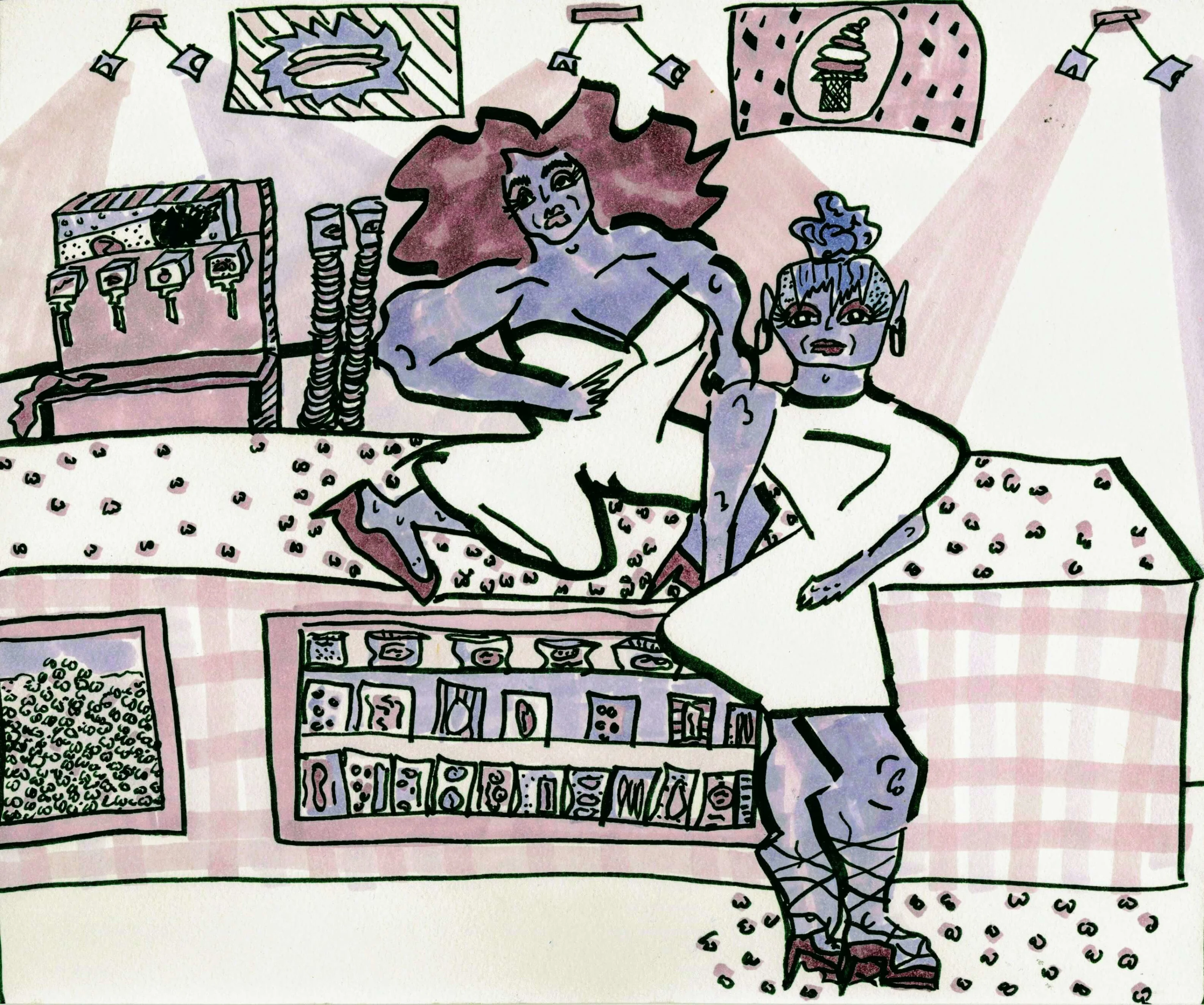
Why do you think drag queens in particular and gay culture in general are so attracted to reclaiming clichés?
I think part of it is we grow up in a world that tells us our weirdness, our queerness , that hates the fact I was always interested in playing with girls versus boys and was odd and was different. Most drag queens as adults have that shared childhood experience. It’s rare that we don’t.
We see the hypocrisy of the world, and we really see it from an earlier age. We note that the most absurd stuff is what’s considered normal—until we grow up to turn a mirror on that normalcy and celebrate the perversity among each other. People who are attracted to drag tend to be people who know how to laugh at the world and have a sense of humor.
For me, ironically, I really love Hollywood and all the clichés of Hollywood. But I’m so fucked up and weird that no matter what I do it’s got a sort of subversion or twist on it because that’s who I am. But I don’t necessarily try to go out and be political or create counterculture. It’s just that the place I’m most comfortable is creating stuff for the outcasts and the weirdos.

For me, just even having the name Peaches Christ and creating the kind of work that I have has an activist aspect.
How did you use theater and live performance in the Midnight Mass series?
I was inspired by my experiences of attending The Rocky Horror Picture Show with shadow casts and audience participation as a teenager, as well as reading about the great gags and gimmicks of William Castle to create a theatrical pre-show experience celebrating our favorite cult films. It was set up so that the screening would be a completely worshipped, shared experience. The drag theatre performances we were staging as movie pre-shows channeled our cult audience’s love of the movies, and we didn't have a fourth wall so the audience really knew they were part of the show . . . sometimes literally.
For example, we always advertise “free lap-dances with every large popcorn” at our Showgirls screenings and when the lap-dancers hit the stage in all their grotesque comedic sexy absurdity you can actually see terror in some of the audience member’s faces. Well, once these crazies are unleashed onto the audience, they’re in their laps, climbing over seats to get to them. You either become one of us, laughing and participating . . . or you leave.
In your work, have you seen drag spark social action?
For me, just even having the name Peaches Christ and creating the kind of work that I have has an activist aspect, especially now that I travel so much and go outside of the bubble of San Francisco. I recently went to Northern Ireland where I was accused and almost charged with blasphemy and lewdness by the government.

What happened there?
They were going to close the show and put me back on a plane, turn me around, and send me out of the country. Of course, we flew in that morning to do the show that night. The concession was that a government official had to attend the show and file a report, which eventually we will be able to see through the Freedom of Information Act in a few years.
I do embrace it more but I’m not going to be the first to say ’Hey everybody, I’m an activist'.
It might even be coming up soon. And that was how the show could go on. Of course, if they found that it was indeed a problem and illegal then the producers who brought me there would be on the line. But I could tell the government official was actually quite embarrassed by the whole thing. These were old rules that old people were hanging onto because I had done a BBC interview where these people heard me on the radio before I ever got to the country. And it was enough to create a stir. But I realized, at the end of that show, the audience was giving us a standing ovation. And we did not deserve it. This was a show called BEAR-BARELLA about barebacking, poppers and alien space sex—just one of the stupidest things. Yet these people were earnestly cheering us. And it was for our right to be stupid, for our right to be offensive and fly in the face of the church, and our right to be queer.
That really reminded me, “Oh there is an activist part of what we do,” but because sometimes we are so immersed in it that we don’t see it. Whereas Panti Bliss from Dublin actually famously addressed the Theater Council about their misogyny and homophobia in a speech that kind of rocked the world over there. And there are those kind of activists who have aggressively been part of movements since Stonewall, where you cannot deny without drag queens and trans folks we would be kind of nowhere in our movement. So I guess, I do embrace it more but I’m not going to be the first to say “Hey everybody, I’m an activist.”


